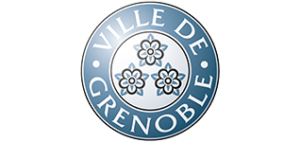In the de Bonne district, 9 mini natural gas Combined Heat and Power (CHP) are used. They produce efficient energy on-site.
Background
The renewal of the military barracks was launched in 2001, proposing more than 850 dwellings and social diversity (35% of social dwellings). The whole area, composed of new and refurbished buildings, is built according to energy efficiency and high environmental quality measures. 9 eco-buildings dispose of a mini CHP plant, in order to produce on-site heat and electricity for the dwellings.
Objectives
- Demonstrate efficient on-site mini CHP plants providing energy for sustainable buildings.
- Address the EU targets concerning security of supply and distributed CHP.
- Develop technical know-how in France related to mini CHP and motivate the import/distribution market chain for mini CHP.
Project description
These small-scale CHP plants provide heating, Domestic Hot Water (DHW) as well as electricity for new dwellings through feed-in tariff contracts. The total capacity installed amounts at 290 kW electrical energy and 590 kW thermal energy. Each mini CHP capacity has been adapted to cover 50% of the heating and DHW needs of the buildings. The estimated efficiency is around 85% (35% of electricity and 50% of heat). Due to financial and technical reasons, the plants are not running during the “summer” period from April to October. Gas boilers and solar panels cover the rest of the needs (extra needs during winter time and all needs during summer time); these solar panels cover about 40% of the total DHW consumption.
Results
- These 9 mini CHP plants will meet all electricity needs for the new buildings in the de Bonne area (about 840 MWh/year) and half of heating needs in the new dwellings (about 1520 MWh/year).
- Thanks to their use, CO2 emissions will be reduced by more than 100 tonnes per year.
Recommendations
- The energy specifications need to be fixed and accepted by all early in the planning stage.
- The architects should collaborate with thermal consultants at the beginning of the design stage.
- The follow up of the energy targets has to be ensured during all the building process.
Further Information
Name: Stephane Orain
Position: Project Manager
Organisation: GEG
e-mail: s.orain@geg.fr

